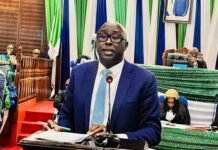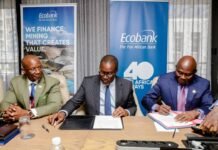By Amin Kef (Ranger)
President Dr. Julius Maada Bio is making a strong case for reforming the United Nations Security Council (UNSC), arguing that its current structure fails to adequately represent Africa’s interests. In an exclusive interview with Africa Renewal, President Bio, who is also the coordinator of the African Union Committee of Ten Heads of State and Government on UN Security Council Reform (C-10), emphasized the need for significant changes in the Council’s composition.
Currently, Sierra Leone holds a non-permanent seat on the UNSC and is presiding over the Council this month. In his address on August 12, President Bio criticized the UNSC’s outdated structure, which he believes does not reflect Africa’s growing significance and contributions on the global stage.
“The current structure of the Security Council reflects an outdated world order that fails to recognize Africa’s growing importance and contributions,” President Bio stated. He highlighted that Africa, with its 1.3 billion people and 54 member states out of 193 UN members, plays a crucial role in global affairs. “We cannot be merely a battleground for proxy wars. We have our own solutions to our problems and should have a voice in how they are addressed,” he asserted.
The President’s call for reform includes demands for at least two permanent seats for Africa and two additional non-permanent seats, increasing the total number of non-permanent seats to five. Additionally, Africa seeks the abolition of the veto power or, if retained, its extension to all new permanent members.
President Bio acknowledged the challenges posed by the permanent members of the Security Council, known as the P-5 (the United States, the United Kingdom, France, Russia, and China), who hold significant power in the Council. However, he expressed optimism that there is a growing recognition of Africa’s plight among these powers.
UN Secretary-General António Guterres supports the push for UNSC reform, stating, “We cannot accept that the world’s preeminent peace and security body lacks a permanent voice for a continent of well over a billion people.” Guterres emphasized the need for the Council to reflect the calls for reform from various UN member states and geographic groups.
Reflecting on Sierra Leone’s own history, President Bio drew lessons from the country’s civil war, which he believes underscores the importance of dialogue and consensus in conflict resolution. “After all the fighting, we resolved our problems at the negotiating table,” he noted. He envisions Africa playing a significant role in global peace and security through multilateralism and partnership.
In addition to his advocacy for UNSC reform, President Bio has prioritized gender equality in Sierra Leone. The country recently passed a law mandating that at least 30 percent of positions in both the private and public sectors be held by women. Sierra Leone has also enacted legislation banning child marriage.
On climate change, President Bio highlighted Sierra Leone’s vulnerability to severe weather patterns and outlined the country’s efforts in reforestation, drainage improvement, and public education on environmental issues. “Combating climate change requires collective action, both locally and globally,” he stated.
President Bio also addressed the issue of capital flight from Africa, urging Africans to leverage knowledge and skills gained abroad to contribute to their home countries’ development. “Home is home. Nobody’s going to fix that home. We [Africans] have to fix that home,” he declared.
As the UN approaches its 80th anniversary in 2025, President Bio’s advocacy for UNSC reform underscores a broader movement within Africa to ensure fair and equitable representation on the global stage.




